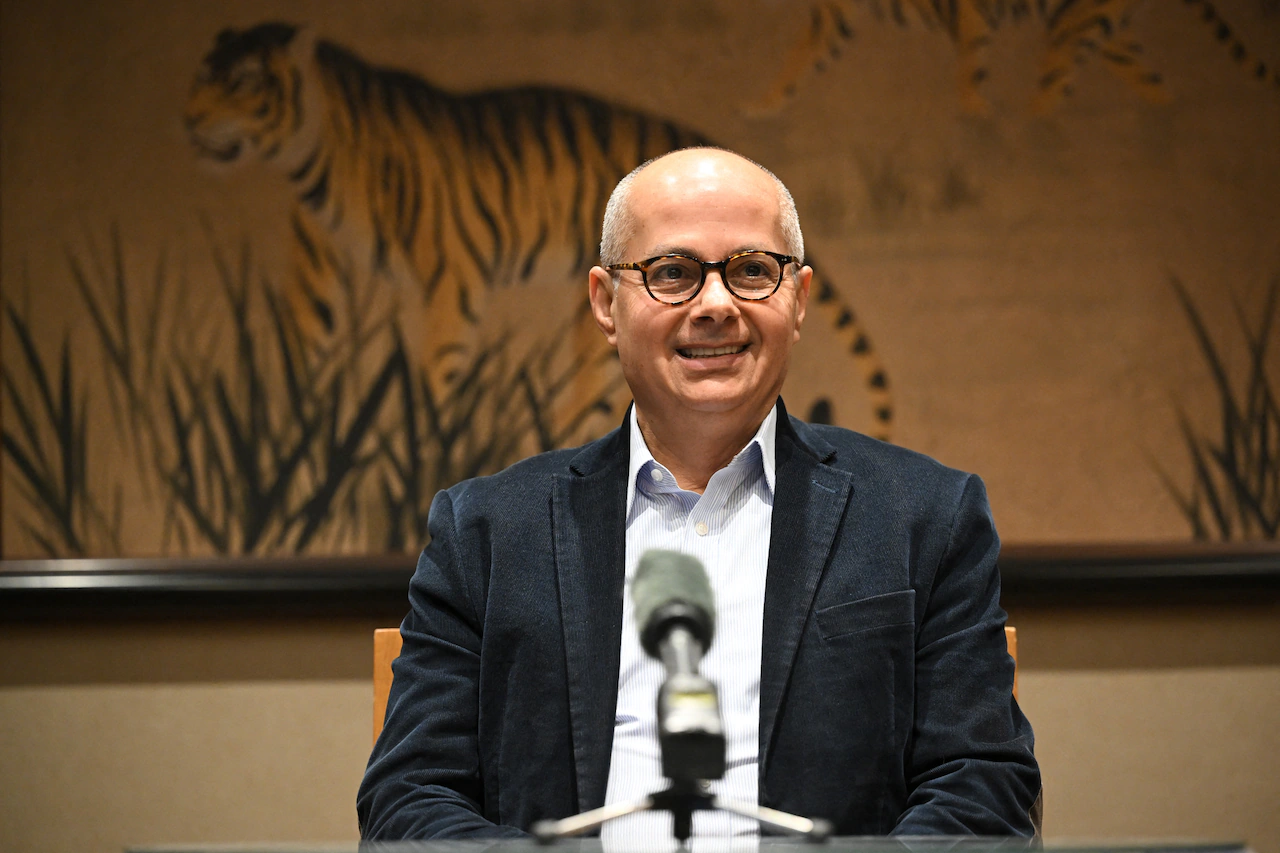
Kathleen Moore l Times Union, Albany, N.Y. (TNS)
A scientist who once had to spend a semester proving his worth to Hudson Valley Community College has now won the Nobel Prize in chemistry.
Omar Yaghi, who is now at the University of California, Berkeley, won the prize with Susumu Kitagawa and Richard Robson “for the development of metal-organic frameworks.” Yaghi described his work as developing a way to “stitch together” molecules into a form large enough for molecular gas to move through it.
This allows scientists to compact gases without high pressure or low temperature, Yaghi said. It can be used to separate carbon dioxide or “harvest water from desert air,” he said on his website.
Yaghi grew up in Amman, Jordan, the child of Palestinian parents. He got his start as a refugee in Troy, where he tried to enroll at HVCC at age 15 without a high school diploma.
“The adviser asked me a few questions, which I attempted to answer in my limited English,” he said in a biography he wrote at U.C. Berkeley.
With no high school diploma and very little English, HVCC rejected him. At the time, the college’s policies did not allow students to enroll before age 18 if they didn’t have a high school diploma, a college spokesman said.
However, the college soon admitted Yaghi.
“The school wouldn’t admit me, but I was allowed to take classes. I took mostly science and math courses, did very well, and returned to the admissions office at the end of the semester. They let me enroll,” he said.
He earned his associate degree there in 1983, transferred to the University at Albany, and graduated with his Bachelor of Science in chemistry in 1985.
He went on to get his master’s and doctorate from the University of Illinois at Urbana-Champaign.
“I am really a product of the public school system in the U.S.,” he said in a Zoom interview on Wednesday, hours after the group learned their research won the Nobel Prize. “This recognition is really a testament of the power of the public school system of the U.S., that takes people like me with major disadvantaged background and allow you to work and work hard and distinguish yourself.”
Yaghi said his early life in Jordan was difficult.
“Life was very tough. We grew up in a home that had no amenities, no running water, no electricity, no plumbing,” he said in an interview last year while watching his device collect water in the desert.
As a boy, he had to collect water for his family, but he only had access to the water source for a brief period twice a month.
“You store as much water as you can within that four hours, and that’s the water that you would use for those two weeks. If you ran out of water, you had to find a different source of water. So, I grew up really appreciating the stress caused by water,” he said in the Tang Prize interview, which was aired last year when he won the 2024 Tang Prize Laureate in Sustainable Development.
At age 15, he said, his father encouraged him to take a chance on education, arranging for him to go to either the United States or Russia to study. He chose the United States. He moved to Troy and stayed in the spare room of a retired couple while he attended HVCC.
“We were there at the right place, at the right time for him,” said HVCC President Michael Brophy.
He noted that Yaghi’s story is a common one at the community college.
“There are still students to this day that are coming from very similar backgrounds,” he said. “Obviously, it really speaks to our focus on the dignity of all our students, to meet them where they are academically, socially and financially.”
But he added that Yaghi’s story is also special.
“Absolutely it still happens, but (it’s not) every day where we’re hearing about Nobel prizes,” he said.
At the University at Albany, a chemistry professor who has stayed in touch with Yaghi for decades was also delighted about Yaghi’s win.
In a later conversation, he said Yaghi still remembered his first years of college.
“He was very grateful for the education that he was given by my wonderful colleagues,” said retired chemistry professor Eric Block. “He told me he spoke very little English when he first arrived. He learned his English in the Albany area.”
Due to his upbringing, Yaghi also said he “didn’t have much education in basic science” before college.
But the college professors took that in stride, Block said.
“This was not atypical. This is the type of student we have had,” he said. “Some of the students who come to UAlbany come from very poor backgrounds. But if they’re motivated and they’re intelligent and they’re willing to learn… We view that as the purpose of the education, to train them to go out there and compete with the best. And boy is Omar a shining example.”
Yaghi appears to be the first UAlbany graduate to win a Nobel Prize. But two faculty members have won prizes. Toni Morrison, who won the 1993 Nobel Prize in literature, was an English faculty member from 1984 to 1989. After her time in Albany, she published “Beloved,” which won the Pulitzer.
In addition, Joachim Frank, who won the 2017 Nobel Prize in chemistry, was a senior scientist at the Wadsworth Center and professor in UAlbany’s School of Public Health from 1975 to 2008. He was affiliate faculty at UAlbany’s RNA Institute when he won the Nobel for his work in developing cryo-electron microscopy for high-resolution imaging of biomolecules.
Yaghi is considered a founder of the field of reticular chemistry, which builds crystalline frameworks at the atomic level. His laboratory invented frameworks that can store hydrogen and methane for clean fuel and capture industrial carbon dioxide emissions, in addition to pulling water from the desert air.